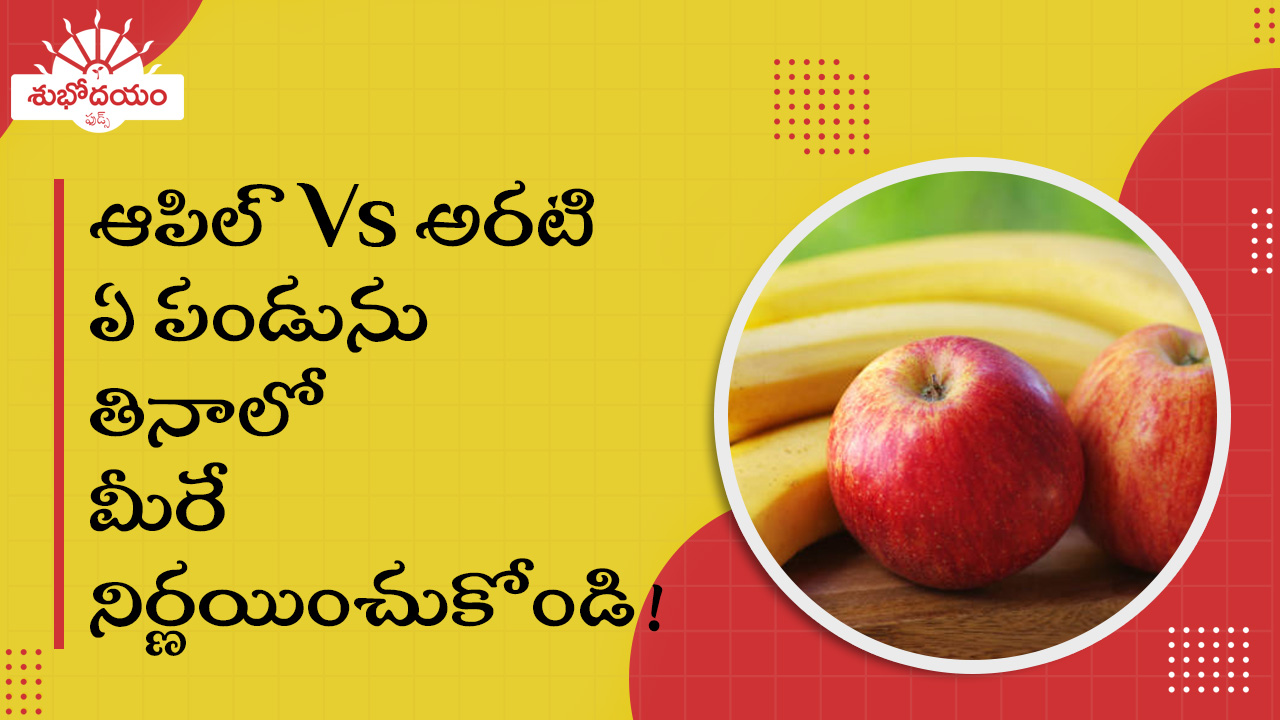APPLE VS BANANA - A COMPARISON OF NUTRITION FACTS
Apples and bananas are two of the most popular fruits in the world, and for good reason. Both fruits are packed with nutrients, vitamins, and minerals that are essential for good health. However, when it comes to nutrition, apples and bananas have their own unique sets of pros and cons. In this article, we'll compare the nutrition facts of apples and bananas to help you decide which fruit is the best choice for you.
First, let's take a look at the calorie count. A medium-sized apple contains around 95 calories, while a medium-sized banana contains around 105 calories. Although the calorie difference between the two fruits is minimal, bananas are higher in sugar, with 14 grams compared to apples' 10 grams.
In terms of fiber, apples are the clear winner. A medium-sized apple provides 4 grams of fiber, while a medium-sized banana contains 3 grams. Fiber is important for digestive health, heart health, and weight management.
Both apples and bananas are good sources of vitamin C, with apples containing about 8 milligrams and bananas containing about 10 milligrams per medium-sized fruit. Vitamin C is an antioxidant that helps protect cells from damage, supports the immune system, and helps absorb iron from plant-based foods.
When it comes to potassium, bananas are the winner. A medium-sized banana contains around 450 milligrams of potassium, while a medium-sized apple contains just over 160 milligrams. Potassium is an important mineral that helps regulate blood pressure and supports healthy heart function.
In conclusion, both apples and bananas are nutritious fruits that can be incorporated into a healthy diet. While apples are higher in fiber and lower in sugar, bananas are higher in potassium and a good source of vitamin C. The best choice for you will depend on your individual nutritional needs and preferences.
First, let's take a look at the calorie count. A medium-sized apple contains around 95 calories, while a medium-sized banana contains around 105 calories. Although the calorie difference between the two fruits is minimal, bananas are higher in sugar, with 14 grams compared to apples' 10 grams.
In terms of fiber, apples are the clear winner. A medium-sized apple provides 4 grams of fiber, while a medium-sized banana contains 3 grams. Fiber is important for digestive health, heart health, and weight management.
Both apples and bananas are good sources of vitamin C, with apples containing about 8 milligrams and bananas containing about 10 milligrams per medium-sized fruit. Vitamin C is an antioxidant that helps protect cells from damage, supports the immune system, and helps absorb iron from plant-based foods.
When it comes to potassium, bananas are the winner. A medium-sized banana contains around 450 milligrams of potassium, while a medium-sized apple contains just over 160 milligrams. Potassium is an important mineral that helps regulate blood pressure and supports healthy heart function.
In conclusion, both apples and bananas are nutritious fruits that can be incorporated into a healthy diet. While apples are higher in fiber and lower in sugar, bananas are higher in potassium and a good source of vitamin C. The best choice for you will depend on your individual nutritional needs and preferences.

















